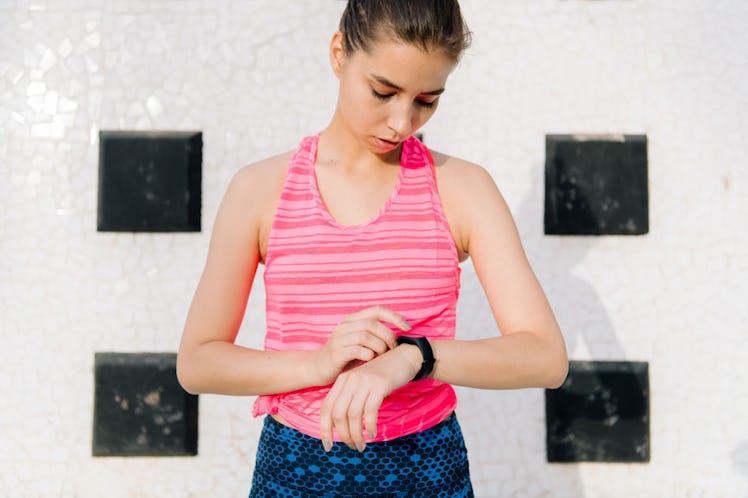
This One Thing You Do Every Day Can Have A Big Effect On How You Judge People
Are you one of those people who scrolls on your phone while you work on your computer, while you also watch YouTube videos on an iPad, while you also check your health stats on your smartwatch? Of course, those are some relatively common practices in the digital age you and I are living in these days, for better or for worse. In fact, even as I write this, I'm using more than one device myself. But as obvious as it may seem that digital multitasking wreaks havoc on your ability focus, how technology affects your social skills is even more complicated than that, according to the results of a new study.
According to ScienceDaily, the new research, which comes from Rice University in Houston, Texas, and will soon be published in the psychology journal BMC Psychology, shows how spending so much of your time on digital devices can negatively — and even inaccurately — influence what you think of people whom you've never met. Shocker, right?
To understand how exactly this study was done, first think about how you typically judge a person and come to your first impression of them. What details, exactly, do you think you usually pay attention to? Do you think your environment has any effect? Or are you mostly judging the person based on them alone, their mannerisms, their behavior, etc.?
The researchers involved in this study set out to discover what shapes your first impression of someone you meet online, or in an otherwise digital way (i.e. video chats and the like), and whether these different tech devices (and, more specifically, how often you use them) actually have any effect on your overall opinion. In order to figure all of that out, as per ScienceDaily, the researchers recruited 96 college students and first collected self-reported details from the participants about their "media multitasking" habits (i.e. how often they use various devices at the same time).
Then, according to the study, the researchers randomly assigned the students to be placed in one of two rooms: an organized room, or a messy one. In both conditions, the students were set up to chat with someone — a complete stranger — on a video call, but in one condition, the stranger was seated in a disorganized room, and in another condition, the stranger's room appeared to be tidier. According to the research, the students were ultimately asked to rate the "conscientiousness" of the person they were chatting with via video, and the idea was that the cleanliness (or lack thereof) of both the student's room and the stranger's room would have some effect on the student's opinion of the other person, even though, of course, details like that really don't reveal anything about a person.
Here's the odd/kind of scary part: According to ScienceDaily, the study found that "frequent media multitaskers sitting in neat rooms were more likely to have higher opinions of people they just encountered," compared to "students sitting in the same room who were not frequent media multitaskers." In other words, the state of the room — something that really shouldn't have any effect on a first impression of someone — appeared to influence what the students thought about a complete stranger, but only if the student had a history of being a media multitasker. How wild is that?!
Richard Lopez, a postdoctoral research fellow at Rice University and the study's lead author, said in a statement, as per ScienceDaily,
Our results suggest that media multitasking may be linked to altered person perception in surprising and unintentional ways, with media multitaskers unknowingly taking in otherwise irrelevant information from their surroundings when they observe and make judgments about other people.
The hope, Lopez added in his statement, is that his research can continue, with the intention of learning more about how people, particularly kids and teens, are perceiving and interacting with others in the digital age.
All I know is, for me personally, I think I'm going to start to making a point to only use one device at a time. Easier said than done, I know, but the last thing I want to be is someone who's too quick to judge other people — especially based on things that don't even matter, like how clean or dirty my room or their room is. Heck, if people judged me based on the cleanliness of my bedroom or my workspace, I probably wouldn't make very good first impressions at all. Kind of puts things into perspective when you think about it that way, right?